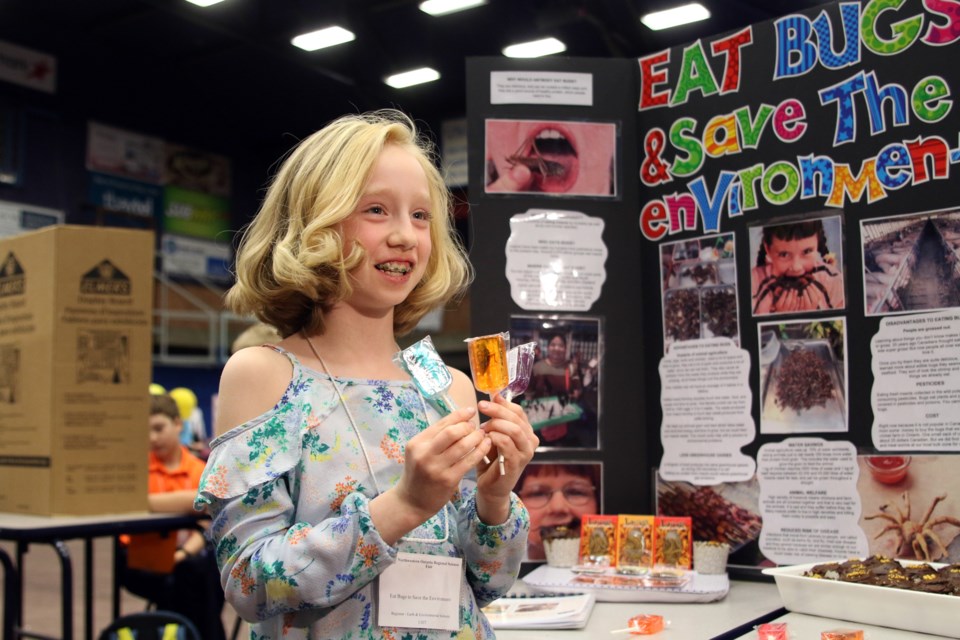THUNDER BAY - Did you know eating insects can provide the same amount of protein as eating meat? Or you can exercise while playing video games? Some young, bright minds are exploring these very questions in the hopes of earning national recognition while pursuing scientific knowledge.
The Northwestern Ontario Regional Science Fair was held on Tuesday at the Lakehead University Fieldhouse, challenging students to present some groundbreaking scientific theories and experiments to earn a spot at the Canada-wide Science Fair to be held in Fredericton.
“I’m always surprised every year by the variety of projects and the scientific reason that goes into them and the innovation,” said Robert Jackson, chair of the committee for the 2019 Northwestern Ontario Regional Science Fair.
“There are some VR projects, some robotics projects, microbiology projects, a lot of environmental projects as well. There is a whole range from basic science to more human based, clinical style research. Spanning everything you can think of in science and technology.”
More than 150 students from Grades 4 to 12 competed in the science fair after earning top spots in school fairs throughout the region. The winners of the regional fair will go on to Fredericton for the national fair.
Jackson said part of the experience is learning about the communication aspect of science through the presentation of an argument or theory to the judges.
“Part of the event is to get judged and is competitive to a degree,” he said. “Because of that, they are challenged, they are questioned, and they have to talk about how they did their science, the problems they encountered, the troubleshooting they’ve done and in return, they get feedback from the judges.”
The judges look at a variety of aspects in the student’s work, including originality, scientific method, and analysis.
“Generally they are looking for scientific thought, originality, how the experiments were conducted, whether they used controls, whether they did replication, did they think about analysis techniques,” Jackson said. “But they are also looking for the reasoning and how the students went about building their projects and what conclusions they came to.”
Cole Lambert, a Grade 8 student from Nor’Wester View School, developed a virtual reality treadmill for video games.
“When you run in the game, you run in real life at the same time,” he said. “I already love playing video games, but I would always get told to exercise. I just wanted to do something with it and decided to go with a treadmill.”
The project took more than four weeks to create and Lambert said he is really interested in both video games and computer science, which has real-world implications.
“A lot of people that play video games are sitting down, but when you are playing and exercising at the same time, you can do what you want, while you are doing what other people want for you,” he said.
Envy Atwood, a 10-year-old student from Agnew H. Johnson Public School, wanted to explore food options, and she found an excellent alternative to meat consumption, as long as you can stomach it.
“My project is about how eating bugs can save the environment,” she said. “They take up way less resources and it’s way better an provides the same amount of protein as meat.”
As part of her display, Envy offered cupcakes made with ground crickets and lollipops with grasshoppers inside.
“The cupcakes have the cricket protein powder,” she said. “It’s just ground up crickets that you put in the cake mix and it makes cricket cupcakes. You can’t really taste the crickets.”
“I ate the crickets and the larva. It doesn’t taste like anything. It’s really crunchy.”
With so many innovative ideas on display from so many young minds, there is no need to worry about the future of scientific discovery.
“I feel very confident. We are in great hands,” he said. “This is our future generation. These students will be scientists, engineers, teachers, and physicians. I’m confident we will have a strong society as a result.”
